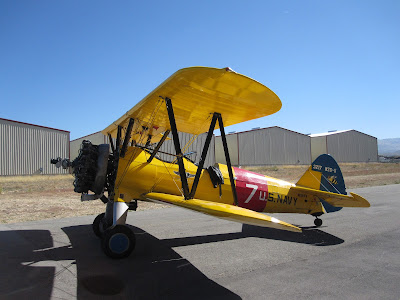After we checked in at the front desk we were taken back to an exam room. I asked the guy, where is Kenya? and he said, "OOPS, wait a minute." When he came back he moved us down the next hall and put us in the room right next to Kenya's desk. He said, "Sorry, I forgot that this is where I was supposed to put you." Kenya had left instructions at the front desk telling them to put Gerrí and I in the room next to her desk, so that she can visit with us and keep an eye on us throughout the day. That is our room on our Wednesday clinic visits. We just LOVE Kenya. She is such a sweet girl. If she weren't married to a nice guy, I'd be trying to line her up with my son.
So, what did we learn from this visit?
Well, first of all, I lost 7 pounds since our August visit. Kari, our nutritionist friend wasn't very happy about that. I'm not supposed to lose weight. With ALS you lose muscle mass. If you lose weight on top of that, your body starts to burn muscle instead of fat. So, nutrition is one of the big things that they watch. If I lose any more weight, Kari thinks it is time for me to place a PEG line.
Here is the deal. Bulbar onset ALS weakens the muscles involved in speech and swallowing. As I talk, the muscles involved in speech become tired and my speech becomes more slurred and nasal sounding. The more I talk, the lousier my speech gets. And, as I eat, I get tired of eating before I have completed my meal. I have never been an enthusiastic eater. I'm the sort of person who eats to live - I don't live to eat with perhaps one very important exception. My favorite ice cream is Haagen Dazs chocolate chocolate chip. I love that stuff, and now I'm in the very enviable position of being able to eat all I want. You know those 1 pint containers of Haagen Dazs? I can eat one of those in one sitting without feeling the least bit guilty. And each container has 1050 calories and 595 of those are fat. I eat 3 or 4 of those a week and on the off days, I consume a chocolate malt from Arctic Circle. (I remember when they used to spell it Artic instead of Arctic.)
 |
| 1050 Guilt-Free Calories |
Dr. Smith, the doctor who diagnosed me, told me last spring that it appears that I have a slow progression rate. We asked Dr. Bromberg. He thinks that I am on the longer end of average. There really isn't anyway to tell, and it doesn't do any good to worry about it. We'll just take it one day at a time and not worry about the timing. But, as a practical matter, it is helpful to have some idea of how long this will go.
For example, we were trying to decide if it made sense to install an elevator in our house so that, when I need it, I can easily move from the garage to the main and 2nd floors of my house. If I were going to be around for many years, that could be a good investment. But it doesn't make sense to spend $35K for a few years of use. When you compare that to about $8K to enlarge the main floor bathroom, you can see why the timing information is good to have. We can turn our main floor office into a bedroom and expand the bathroom for about that amount ($8K). Ann, our MDA lady, told me that she had a wheel chair lift in storage that has hardly been used. She would like to get it out of her storage space so she said that if I can find someone to install it, I can have it. If I end up in a wheel chair, that would be nice because I wouldn't have to construct an ugly 18 foot long ramp. So - a FREE lift and no 18 foot ramp!
These are some of the practical aspects of ALS. You don't spend much time thinking about things like this when you buy a house, but you should. We all get old enough to want to avoid stairs at some point, right?
As far as my physical condition goes, I feel like I am doing quite well. It is getting harder to talk but that was already a known problem. I keep thinking that I should take video of me speaking so that I can compare how I sound today to how I sound down the road. Now, that is entertainment!!! So I'll probably do that for your viewing pleasure.
I have more weakness in my lower legs. This has slowed me down some and it takes more effort to cover any distance. I have actually been using handicapped parking spaces! I thought I would feel guilty about using the blue parking spaces, but guess what? I don't! It's a really nice perk. I also need to be a little more careful that I don't stumble and fall. Last week I went outside to get the newspaper and slipped with both feet flying out from under me. I'm sure it looked like a cartoon, or a Three Stooges stunt, or a silly Dick Van Dyke fall. Walking outside in smooth bottomed slippers on an icy sidewalk isn't the smartest thing I've done. But, I used to get away with it with very little danger to life and limb.
All things considered, I'm feeling very well. And I'm telling everyone that as my speech gets worse, I'm getting better looking to make up for it.
That's it for now. There have been some new developments at work, which I will write about soon.












